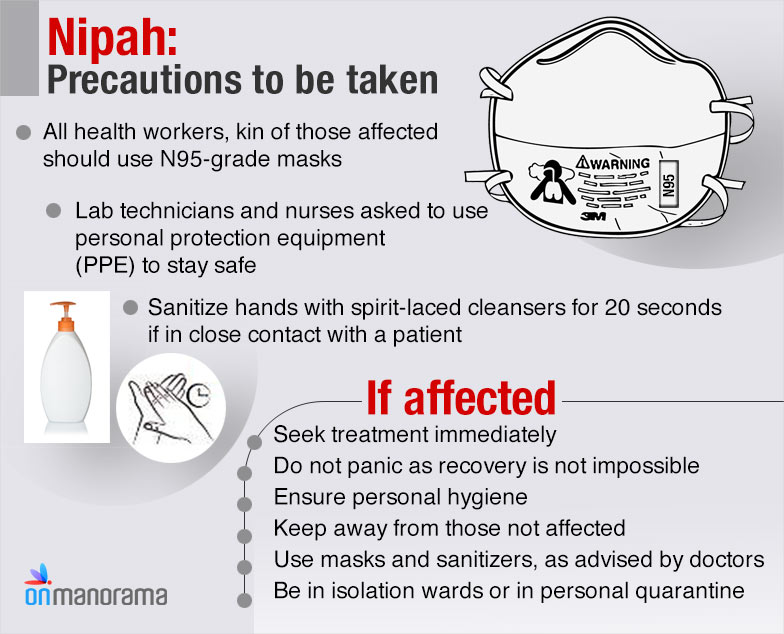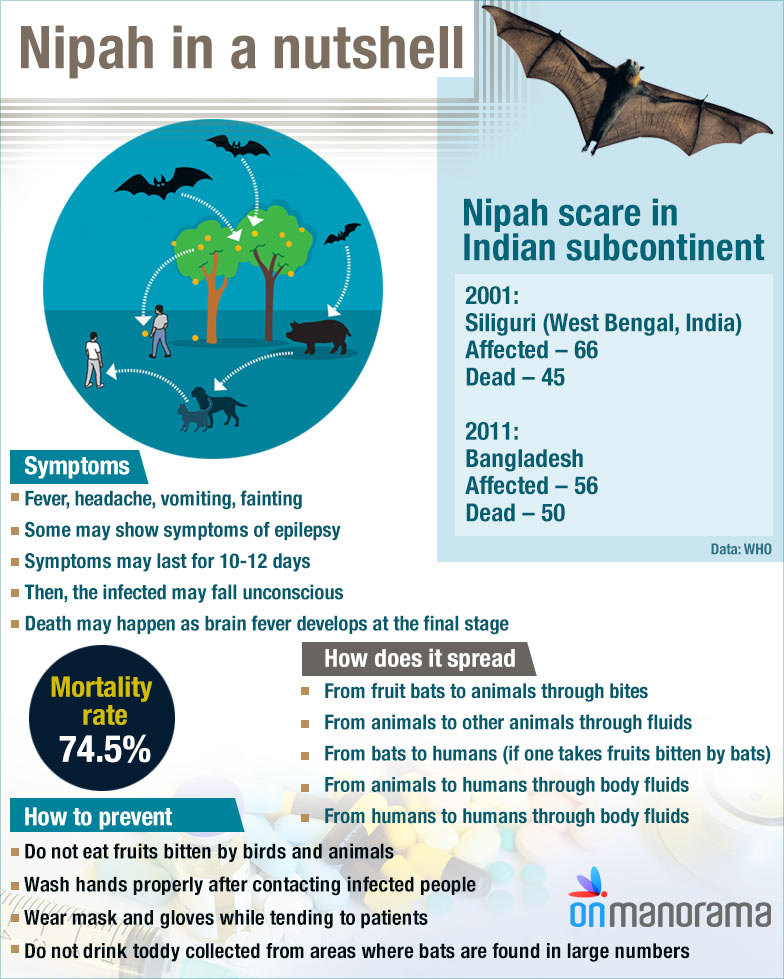Nipah: About the deadly virus in brief and precautions
Mail This Article
A year after Nipah infection was detected in Kozhikode, the disease is in the news again. A student admitted to a private hospital in Kochi complaining of high fever has shown symptoms similar to those of Nipah. However, the Health Minister said that there was no need to panic. Even if Nipah is confirmed, the state is prepared to tackle the challenge, said the Minister.
How Nipah spreads
The presence of Nipah virus has been detected in the saliva and excreta of bats. The virus easily finds its way into the fruits partially eaten by bats and remains live up to three days. This is because the sugar and tanginess of the fruits provide favourable conditions for the virus with a low pH. If a man eats such a fruit bitten by a Nipah-affected bat, the virus can reach his trachea. From there, the virus attaches itself to the Ephrin B2 protein in the arteries of the lungs and multiplies there.
Within two weeks, the person would develop sneezing and coughing. More number of Nipah viruses appears in the blood and a condition named viraemia develops. The virus soon travels to the brain through blood and enters the Ephrin B-2 in the brain cells, causing encephalitis.
Soap remedy
The alkali present in soap can neutralize the Nipah virus. The virus grows ideally in a temperature of 22 to 39 degrees Celsius. It also needs moisture to survive. People going nearing a patient have to wear a mask that covers the nose and mouth. They also should wear gloves to cover the hands. Medical personnel attending to a Nipah patient should wash their hands thoroughly with soap. They can also take a bath using soap to wash away the virus.
Will Nipah spread through air?
The assumption that Nipah virus spreads through air is not exactly true. The saliva and other fluids from a patient may be sprayed through the air from the mouth up to a distance of one metre. As a result, people within this space stand the risk of suffering from droplet-borne infection. However, Nipah virus does not survive in the air for long like tuberculosis bacteria. So, it does not spread for a considerable distance through air. Moreover, RNA viruses do not survive in the atmosphere for a long period.
Do we need to fear bats?
Unless it is proved that the Nipah infection was spread by bats, such a conclusion cannot be reached. What is crucial is identifying the source of the virus.
Would birds spread the virus?
Nipah virus infects only mammals. So it does not spread to birds. The virus affects certain special cells present only in mammals.
Does the virus spread through well water?
The body fluids of a bat may get mixed with water in a well. However, considering the quantity of water in a well, the presence of the virus would be insignificant. Nipah virus would not be neutralized in well water but it won’t also multiply. If the water is boiled, the virus would be destroyed.
How can a common man detect the disease?
There is no way that a person who is not a doctor can identify Nipah. It has the same symptoms as other fevers. The best way to protect yourself is to rush to a hospital as soon as you get fever.
Would the virus spread from a patient in the early stages of the disease?
Some diseases spread during the early stages when the patient is yet to show the symptoms. However, this is not the case with Nipah. The Nipah virus spreads only after the patient shows clear symptoms of the disease. In fact, the chances of contracting the virus from the patient are very low between 7 to 14 days.



